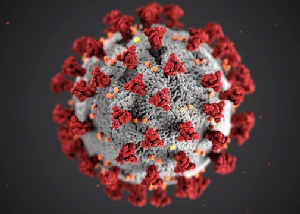Jamaica must find ways to Market Cultural and Creative Assets
KINGSTON, Jamaica – President of Jamaica Trade and Invest (JTI), Robert Gregory has said that Jamaica’s ability to survive and be competitive in the global marketplace would depend on the country’s ability to find innovative ways to market its cultural and creative assets to the rest of the world.
He emphasized that this thrust would have to be underpinned by an inspired, educated, trained and trainable populace.
Mr. Gregory, who was guest presenter at the fifth Buxton Thompson Lecture at King’s House on February 27, noted that the current era was driven by information, communications, logistics, and collaboration, all of which were “transforming the nature of business and relationships everywhere in the world, directly and indirectly.”
“The (current) global currency of trade and business is not gold, dollars or real estate, but intellectual capital. The industrial age has long given way to the information knowledge economy, and the defining value of the (present) time is the deployment and exchange of intellectual products and services. That is the truth that Jamaica has to come to grips with in this era of the 21st Century,” the JTI head said.
He contended that Jamaica’s natural creativity and cultural strengths to manage human capital formation was key in the thrust towards attaining global competitiveness and securing the wherewithal to create wealth and a better quality of life for all Jamaicans.
“This is the challenge for leadership at every level of society, the government, public service, educators, church, business community, civic and community leaders, and in my opinion, the most important leaders in our society – the parents,” the President said.
Mr. Gregory alluded to the Republic of Ireland, which he noted, had striking similarities with Jamaica in terms of socio-economic turmoil and upheavals, social unrest, political instability, economic downturn, and a crippling brain drain, but which had experienced a remarkable and positive transformation.
“The Irish transformation over the past 15 years or so has been nothing short of profound, bringing new levels of economic wealth, opportunities, achievements, and national confidence. From a reality framed in sectarian violence, political instability, domestic terrorism, and national insecurity, Ireland today has 1,000 foreign-owned companies, directly employing more than 135,000 people, which in turn support many thousands of additional jobs,” he added.
He added that the period has seen upwards of $(Euro)14.5 billion in investments being pumped into and absorbed by the Irish economy. This, he pointed out, provided opportunities, which precipitated a reverse in the “brain drain” that the country experienced in earlier years, which saw large numbers of Ireland’s highly trained professionals seeking greener pastures in foreign countries. Many of these persons, he said, have been returning home to take advantage of the opportunities available.
Mr. Gregory pointed out that Ireland, through that country’s Industrial Development Agency (IDA), had been marketed to the world and positioned as an ideal investment location. This thrust, he said, had been greatly enhanced through the input of their internationally renowned cultural figures, such as singer, Bono of the rock group -U2.
“Imagine for a minute, a nation like Jamaica, which is blessed with so much bold energy and cultural giftings, if we could effectively market Jamaica as a prime business investment destination in the Caribbean by using the personality of the country, which is embodied in the people. Imagine the limitless possibilities the Irish example provides us as a benchmark to catalyze and drive the process to become a world class knowledge-driven economy,” he said.
The President said the country could also be like 21st Century Ireland, and “reap great financial and economic gains.” He underscored the need for the relevant stakeholders to undertake formation of Jamaica’s “human capital,” to achieve national and global competitiveness.
“We must create a confident (and) educated Jamaican population and complete the reformation of the education system. From this we must (then) construct a world class workforce, driving creativity and innovation. By so doing, we can, like Ireland, systematically reverse the brain drain, and thereafter position the unique culture, creativity, competence and innovativeness of our people as the basis for attracting and absorbing wealth-creating investments in our country. If the Irish can, so can we,” Mr. Gregory asserted.


